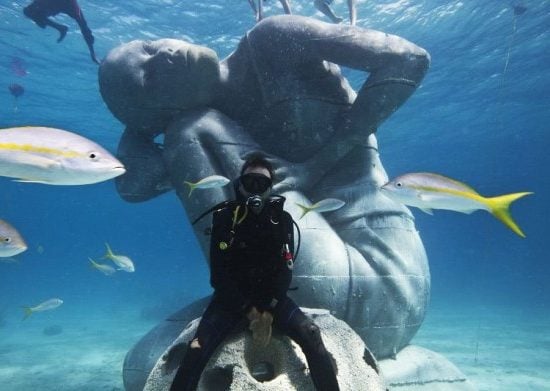The Bahamas is now home to the world’s largest underwater sculpture. Just off the coast of New Providence, Jason deCaires Taylor’s Ocean Atlas is a 60-ton, 18-foot-tall statue of a young Bahamian girl who appears to be holding up the ocean, much like the mythological Titan Atlas shouldered the burden of the heavens.
Commissioned by the Bahamas Reef Environment Educational Foundation, Ocean Atlas is the first work in a planned underwater sculpture garden and was christened the Sir Nicholas Nuttall Coral Reef Sculpture Garden after the organization’s founder.
Taylor created the world’s first submerged sculpture park, Grenada’s Molinere Bay Underwater Sculpture Park, and has pioneered the practice in oceans around the world.
Made from sustainable PH-neutral materials, the statue will gradually transform into an artificial reef, attracting coral and other marine life.
The allusion to the Atlas myth serves as a reminder of the many environmental threats that our oceans face, from overfishing and global warming, to water pollution and the Great Pacific Garbage Patch, and a warning that future generations will have to deal with the consequences of current environmental neglect.
“I am trying to portray how human intervention or interaction with nature can be positive and sustainable,” Taylor told Environmental Graffiti, “an icon of how we can live in a symbiotic relationship with nature,”
